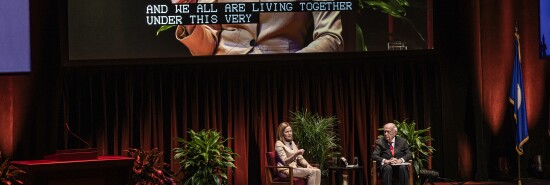
Justice Barrett makes sense in supporting an ethics code
Quin Hillyer
Video Embed
Conservatives have spent so much energy in recent months defending Supreme Court Justice Clarence Thomas from overblown allegations of ethical blindness that they haven’t considered the benefits that Supreme Court ethics rules would bring.
Conservative Justice Amy Coney Barrett had the wisdom this week to say such an ethics code would be useful. She is right — assuming, that is, that to avoid constitutional considerations regarding the separation of powers, the code would be written by the Supreme Court itself, not by Congress.
AMY CONEY BARRETT SIGNALS SUPPORT FOR SUPREME COURT CODE OF ETHICS
“I think it would be a good idea for us to do it, particularly so that we can communicate to the public exactly what it is that we are doing in a clearer way than perhaps we have been able to do so far,” Barrett said at an event at the University of Minnesota Law School attended by more than 2,500 people.
Because of hyped-up stories about Thomas (and fellow conservative Justice Samuel Alito) accepting extravagant hospitality from wealthy businessmen, which bear no lengthy relitigating here, Democrats in Congress have been calling for Thomas’s ouster and threatening to create a statutory code of ethics for the high court. Many conservative legal advocates, however, argue that Congress lacks authority to directly limit the court’s activities and that ethics laws are tough to tailor to a myriad of potential situations, in a way that “exposes federal judges to all sorts of abusive complaints.”
Those advocates make some very good points. On the other hand, the lack of a formal code is exactly what has led justices into situations where they themselves were unsure of what sorts of things should be publicly reported and has allowed liberal critics and the media to describe things as unethical mountains that in reality are smallish foothills. The lack of a code hasn’t protected Thomas and Alito from exactly the sorts of allegations that their conservative defenders obviously consider to be “abusive complaints.”
Clarity and transparency could provide more solid defenses to justices who could say that a code does specifically allow various activities (such as speeches to and dinner with like-minded groups) and acceptances of hospitality from honest-to-goodness friends with no business before the court. In other words, a code could be a shield against false attacks rather than a stumbling block on which to trip and fall.
CLICK HERE TO READ MORE FROM THE WASHINGTON EXAMINER
Putting together just the right sort of code with the right level of specificity is a difficult task, which is why Barrett offered no timetable for one. But she, and Chief Justice John Roberts before her, indicated that the justices are seriously and carefully trying to discern whether and how a code or more stringent guidelines can be well drafted and implemented.
From available evidence, I have seen no indication of real corruption from any of the nine justices, but instead, some blindness as to appearances. It would be better for the justices themselves, though, to understand clearer boundaries. Every good parent knows the counterintuitive truth that wise rules, clear but not too cumbersome, can be in many senses liberating.
